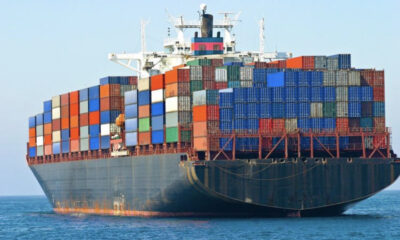Imagine your business as a busy kitchen. Ingredients (raw materials) need to be ordered, stored (in the fridge), prepped (production), and cooked (assembled into a product). Then, the final dish (finished product) needs to be delivered hot and fresh (on time and in good condition) to the customer. Logistics management is like the skilled chef who coordinates everything behind the scenes.
Here’s why good logistics management is essential for your business success:
1. Boosting productivity
Good logistics help you optimize production, supply, and delivery processes. This saves money, avoids mistakes, and lets your team work more effectively. They can produce more in less time, without sacrificing quality.
Imagine your kitchen staff having all the ingredients they need, prepped and ready to go. They can whip up delicious meals quickly and efficiently.
2. Running smoothly
Logistics ensures everything runs smoothly, like a well-oiled kitchen. It plans, organizes, and controls everything that happens to your product, from getting ingredients to delivering the final dish. This avoids delays, mistakes, and grumpy customers (because their food arrived cold).
3. Happy customers
Fast and reliable deliveries are what keep customers happy these days. Imagine ordering a pizza – good logistics ensure it arrives hot and on time, making you a hero to your hungry friends. Logistics helps businesses meet these expectations by getting products to customers quickly, which builds trust and keeps them coming back for more.
Logistics management helps you meet customer expectations and build trust. They’ll keep coming back for more if they know they can rely on you to get them what they need when they need it.
4. Saving money
Every business wants to cut costs. Logistics helps by optimizing storage, transportation, and other areas. It’s like using the right amount of fridge space, finding the most efficient way to cook, and negotiating good deals with suppliers. This reduces waste, saves time, and helps your business keep more money in its pocket.
5. Standing out from the crowd
In today’s world, fast and reliable service is a must-have, not a bonus. Customers have many choices, and they’ll often go with the business that offers the quickest and easiest delivery.
Think of two restaurants: one with slow delivery and another with lightning-fast service. Good logistics give businesses an edge over competitors who can’t deliver as efficiently. By offering faster shipping or lower delivery costs, you become the more attractive option.
6. Becoming more agile
With good logistics, you can track and measure each step of the process. This gives you real data to analyze and improve your business. Think of a kitchen constantly looking for ways to improve. Maybe they can find a faster way to chop vegetables or a more efficient layout for the kitchen.
7. Real-time monitoring
Good logistics lets you track everything in real time, from storage to delivery. This allows you to make better decisions and identify areas for improvement. Imagine the kitchen manager being able to see exactly where each delivery driver is and how long it will take them to get to the customer. They can address any issues immediately and keep things running smoothly.
In short, effective logistics management is a secret ingredient for business success. It helps your business run smoothly, save money, keep customers happy, and beat the competition. By having a well-organized logistics system, your business can focus on what it does best – creating great products and providing excellent service.
By implementing effective logistics management, your business can experience many benefits, from increased productivity and happier customers to lower costs and a competitive edge. It’s a win-win for everyone.




































































